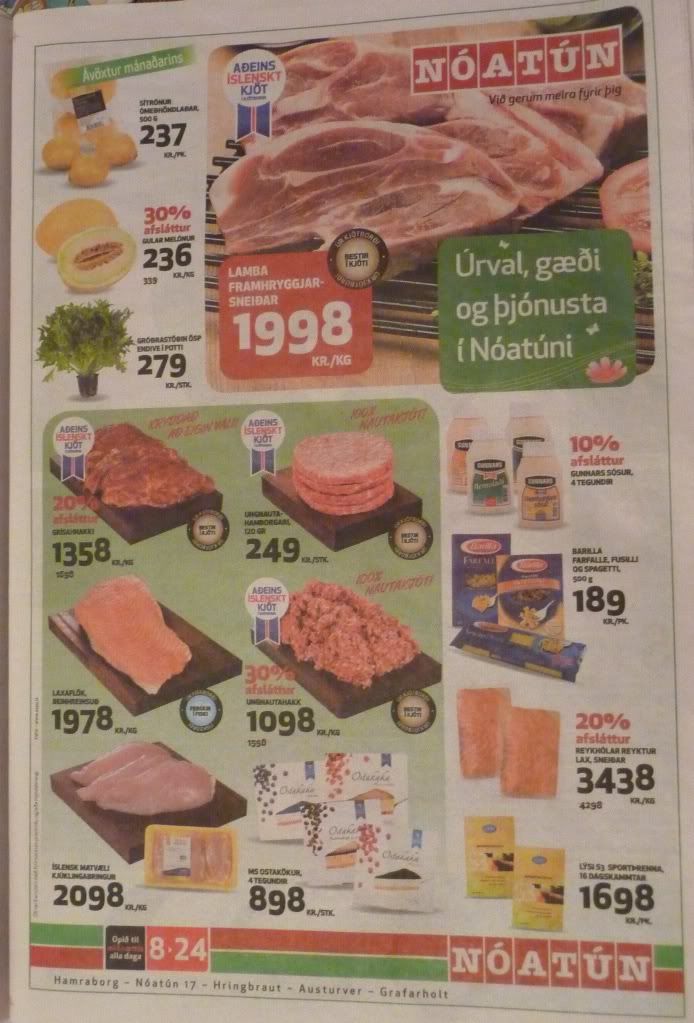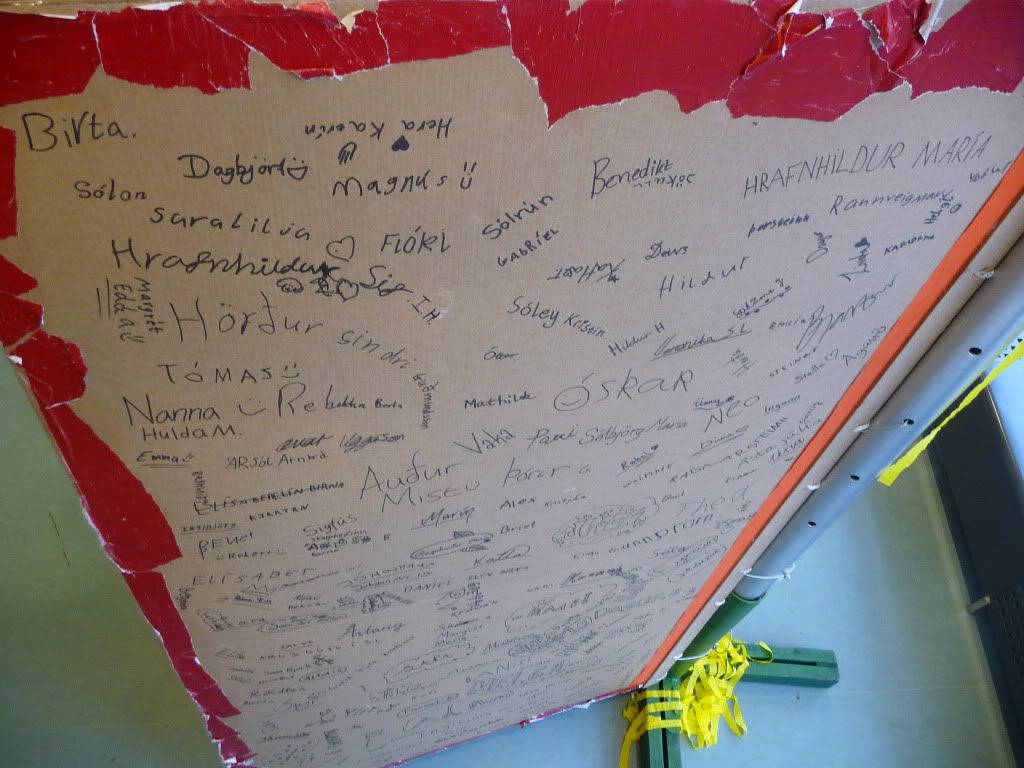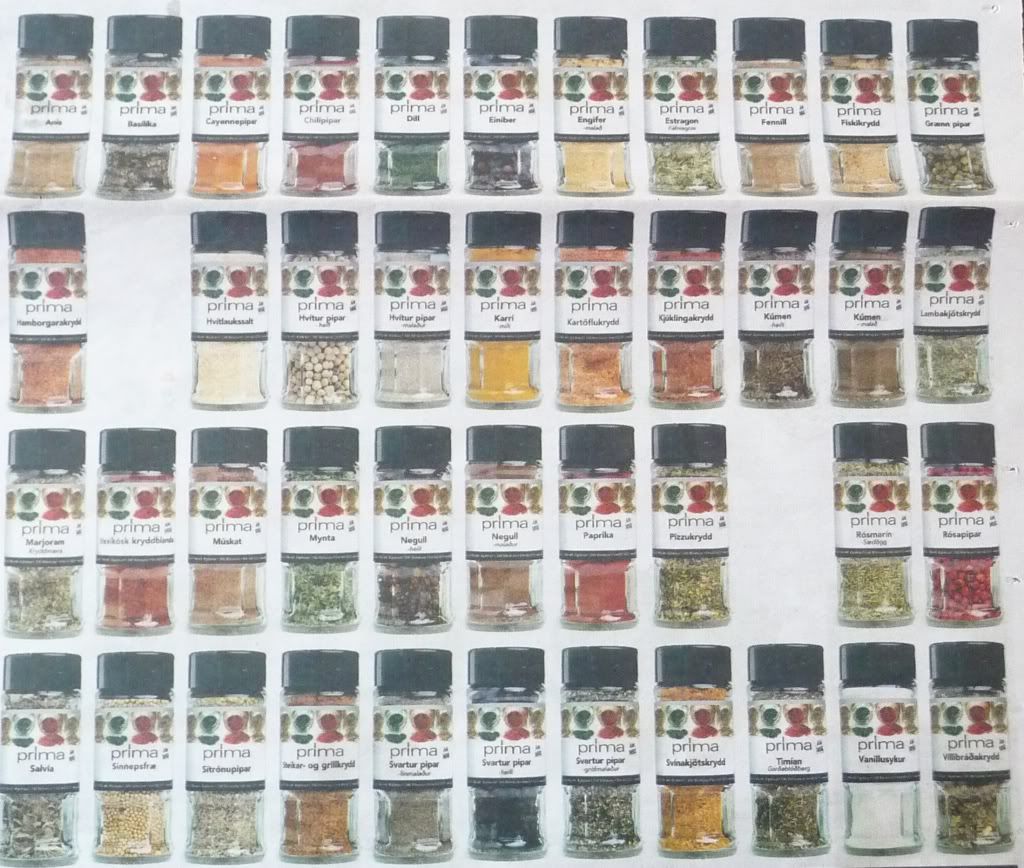Here are some things that you can use to study a few of the topics I’ve covered in previous posts. I haven’t taught you all of the grammar needed to understand the questions, or even everything needed to completely understand the posts I’m having you exercise, but that will have to come later or from your own textbooks.
For the post about spelling:
Hvernig er það stafað? – How is that spelled? (More literally: How is it spelled?)
Geturðu (“getur þú”) stafað nafnið þitt? – Can you spell your name? (Canyou “can you” spell namethe yours?)
You can replace “nafnið” in the sentence with “heimilisfangið” to mean home (mailing) address or “netfangið” to mean Email address, and the rest of the sentence would be unchanged.
For numbers part one and part two:
Hvað er símanúmerið þitt? – What’s your phone number? (What is phonenumberthe yours?)
Geturðu að segja símanúmerið þitt? – Can you say your phone number? (Canyou to say phonenumberthe yours?).
Símanúmerið mitt er… – My phone number is… (Phonenumberthe my is…)


Hvað kostar…? – How much is… (What costs…?)
Here you can insert a number of things to make it a complete sentence, including “þetta – this”, “hún/hann/það – it”, and the actual name of what you’re talking about. Remember that with “it”, the word has to match the gender of the thing that you’re talking about (hann – he, hún – she, það – it). Even if you don’t specifically say what you’re talking about in the sentence, as long as it’s clear (ex. you’re pointing to it in the store) you have to know.
Þetta kostar ___ krónur – This costs ____ crowns. (same)
Hún kostar tíu krónur – It costs ten crowns (She costs ten crowns).
For names:

This was taken at the Reykjavík town library and is part of an exhibit of some kids’ artwork. Can you tell which genders the names in this photo are? Can you spell them aloud?
For cooking and seasoning info:

Do you remember the names of these in English?


Comments:
Kris O:
I have an ancestor-Thorbjorg knarrabringa, who has been named in English as the ship-breasted. My question is can you give me a literal translation of the knarrabringa? I know the knorr is a merchant ship but I also know brjost is the word for breast, so that is why i am asking this?
sequoia:
@Kris O Haha, interesting! I searched a little bit, it seems it would indeed be something like “merchant’s-ship-chest”. Based on the Old Norse dictionary below, it’d be more like “chest” instead of “breasts”, so I guess they’re maybe they could be saying she’s barrel-chested instead of that she has large breasts? If I find anything definite other than just people’s translations of “large-breasted” I’ll edit this comment, but nicknaming someone as large-breasted seems kind of funny… Sometimes, especially with these “meanings” you find in English, you get problems where the same word is used differently today and people who don’t know much about the older meanings mistakenly translate it as what it would be in modern times (especially lazy Icelanders who forget that words can change meanings!). I really don’t know much about Old Norse stuff though.
Normally I get a lot of use out of this site when reading older things, it’s the Old Norse dictionary online, maybe you already saw it: http://norse.ulver.com/dct/zoega/index.html
It looks like the more “proper” way of writing the name is “Þorbjörg knarrarbringa” so maybe you can get more search results that way. When I skimmed the search results in Icelandic I didn’t see them talking about the meaning of the name, but I can look closer in a little while and report back if I find anything.
EDIT: To clarify, knarrar and bringa seem like two totally different words they put together, so we have to look them up separately and just guess the combined meaning. Iceland really likes compound words!
Mor:
Oh hell, spelling and pronouncing is very difficult in Icelandic
sequoia:
@Mor Yeah. In time spelling becomes a lot easier, because so many Icelandic words are actually just compound words and you see the different parts over and over again. As for pronouncing, I’m still bad at that myself so I can’t say much, but it certainly helps if your first language has ö and rolled r’s and that ll (tl) sound… Not many people have put up pronunciation lessons that have video and audio for some of these sounds, unfortunately, and many Icelanders like to talk so fast and muddled that you can’t understand them. Some basic rules I didn’t even learn until I had already taken three Icelandic classes!
If you can find videos of old people talking, and sometimes young children, it might be easier to pick out the sounds and mimic that type of pronunciation. I think older people are usually by far the easiest. Some people who had to have speech therapy as children also talk a lot more clearly as adults, but that would be something pretty hard to find by chance I think.
EDIT: If you can find recordings meant for children, they often talk clearer and in an exaggerated way, so it helps in getting the sentence melody correct. I just play it, pause the audio, repeat the sentence they just said, play the next sentence, that sort of thing.
http://www.sogustund.is/ (you have to make an account and log in, but after you can listen to at least one free recording meant for young children and she speaks pretty clearly – go to “Gullbrá og birnirnir þrír”)